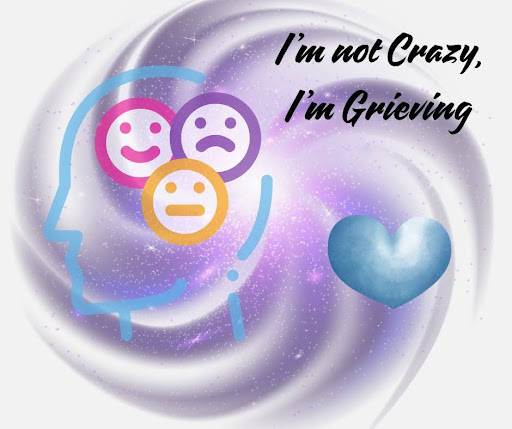One of the biggest questions that we hear from widows is “What is wrong with me? Am I doing this grief thing the right way?” These questions and many others like them are often asked by widows as they try to process the loss in their lives. You may cry while doing laundry or forget to pay a bill. You snap at someone you love. In a room full of people, you feel totally alone and isolated. Amidst all of these events, a small thought enters: “Am I ever going to be OK again?”
Like many of you, we’ve both been there. More than once.
We were not prepared for the intense feelings and chaotic emotions. One minute we were sad, then, out of nowhere, we became mad. Grief and loss of a spouse especially hit hard. It is normal for the emotions to be all over the place, making us numb and feel like perhaps we’re losing our minds. That is grief, along with the emotions that accompany it. The swirl and intensity of these can be distressing.
You might feel anxiety, fear, anger, have your mind go numb, or be unable to concentrate. These are normal parts of the grieving process.
Teresa’s therapist shared sage advice of riding the waves of grief and allowing the feelings and emotions to come.
Another part of grief is the physical exhaustion and pain that goes along with the emotional pain. All the things we have to deal with, decisions to make, tasks to do, and phone calls to make. The list seems endless and is exhausting. You may feel like there’s an actual hole in your heart as it aches with grief. All of this is, unfortunately, another normal part of the grief process. Your body and mind are working to deal with this loss.
At some point, each of us quietly wondered, Am I going crazy?
What we learned in this process and what we would like to share with you and anyone who has had a loss in their life: You are not crazy, you are not broken. You are simply grieving.
Grieving takes time.
Grief is more than emotions. It involves the neurological, psychological, and physical systems in your body as your brain works overtime to process your loss. It is a traumatic life shift. Your body carries stress as it responds to this shift, and it requires time and support to process it. Your world has entirely changed, and your emotions are seeking the language to understand what has happened.
While the world may want you to move on quickly, there is no map for this journey. There is no predetermined timeline on how quickly you will move through it. There is also no easy way to explain to others what it is like to lose the person who made the everyday special and completed your world. Always remember that your journey is just that, YOUR journey. It will be as unique as your relationship with your loved one, and it will take time.
When you start questioning your process and whether or not you are doing it correctly, your grief may have reached a deeper level. This is a time when you need to extend the same grace to yourself that you would give to those you love. Offer yourself radical compassion and empathy in your grief process.
You may be to the point in your grief journey where people think you are doing OK, and you tell them you are “fine” when actually you are not at all fine and are holding on by a thread. That’s OK, and sometimes it’s easier to tell folks we’re OK than to deal with them and our emotions with them. It’s normal to want to hold it together at work, with family, or with the children.
Remember not to stuff your feelings forever. It’s essential to take the time to have all of your feelings and allow them to flow.
Grief changes us. We gain a new perspective on what’s important, how we think and respond, and how we show up in the world. We survive one of the most profoundly painful moments humans can have. That makes you resilient and a survivor.
One thing you can do to help the process is to name what is going on. Name it to Tame It. Take the time to determine what you are feeling. Tell yourself or others: ‘This is really hard; I am hurting; I need help.’
Another thing we can do is to stop stuffing our emotions and pretending we are OK. We acknowledge the mental and physical challenges we are facing.
Lastly, we tell each other the truth: You’re not crazy. You’re grieving. And you don’t have to do it alone.
You are allowed to feel what you feel. You’re allowed to need or want help in the form of therapy or coaching. You’re allowed to take time away, rest, cry, scream, pray, walk, run, pound pillows, talk, and fall apart.
You’re doing the best you can, given you’ve been torn in half. That’s all anyone can do is the best they can in the moment, given what they have to offer. That’s grace. That’s courage. That’s healing.
Know you are not alone, and you are not crazy.
Peace & Blessings,
Teresa & Jeni
PS: For additional support, you can download our free copy of 10 Ways to Move Forward After Loss
The First Days: Coping with Life After Loss is a resource for the first days after a loss – available on Amazon in paperback.
My Journey as a Widow: A Widow’s First Journal is a follow-up journal for processing complex emotions and moving forward with hope. It is available in paperback on Amazon.
Follow us on Social Media:
Facebook: https://www.facebook.com/TornInHalfwidows/
LinkedIn: https://www.linkedin.com/company/torn-in-half/




